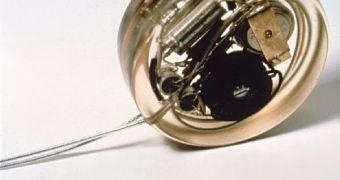A group of British doctors including researchers from the University of Bristol’s School of Physiology and Pharmacology have recently implanted a nerve-stimulating device in two patients suffering from heart failure. The pacemaker-like instrument could potentially reverse the effects of the condition.
This is only the third time ever that such implants are placed inside patients. Dr. Angus Nightingale, a consultant cardiologist at the Bristol Heart Institute, was the leader of the team that carried out the operation. The group also included UB professor Julian Paton and Dr. Emma Hart.
The team was the first to conduct a trial of the new device in Europe. The NSD is touted as a potential method to reverse the effects of heart failure, a condition in which the heart becomes enlarged because it progressively loses its ability to pump blood efficiently.
Tiredness and breathlessness are among the first symptoms to set in. More adrenaline is pumped into the heart, as the body attempts to restore normal blood flow. However, these measures lead to the heart becoming larger than usual, and its eventual shutdown.
What the NSD does is interfere with the way adrenaline acts on the heart. Scientists who developed the system believe that this will allow the heart to shrink back to a normal size, and pump blood with increased efficiency.
The implant itself resembles a pacemaker, and is installed under the skin, in the chest area. It connects to the vagus nerve, which links the heart and the brain. Usually, the nerve is used as a target for therapies against depression and epilepsy.
By providing electrical impulses to this nerve, which is a part of the autonomic nervous system, the NSD helps improve cardiac function and life expectancy. The system is in charge of controlling automated processes in the body, such as the heart rate.
“More than a million adults in the UK suffer from heart failure, this new treatment has to date shown promising results in both animals and humans and could offer new hope in improving both the quality and longevity of life for UK patients,” Paton says.
“It is really exciting that Bristol is at the cutting edge of new research into heart failure. This is a great example of research where collaboration between clinicians and scientists in Bristol is making a difference to patients with heart problems,” Nightingale adds.
The UK portion of the European clinical trials – which is sponsored by the Boston Scientific Corporation, and includes 96 patients at 25 locations – is scheduled to conclude sometime in 2013.
“We are the first team to implant a vagal nerve stimulator into a patient in the UK. The idea behind this is that chronic autonomic imbalance is believed to be a risk factor of the progression of heart failure and adverse cardiovascular events. The stimulation should alter the balance of the system and improve cardiac function,” the expert concludes.

 14 DAY TRIAL //
14 DAY TRIAL //